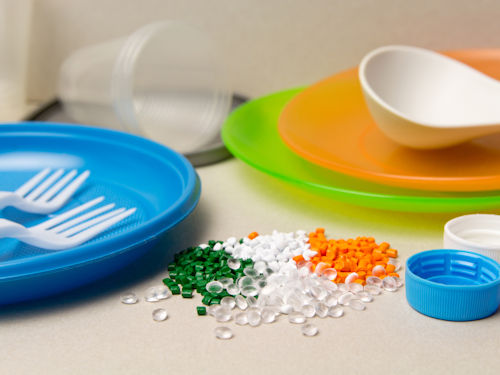With Fertility at an all-time low in Australia and throughout the world, there is so much research being conducted into WHAT is causing the issue in order to develop a process to turn this negative trajectory of sperm count around over time.
With the drastic rate of decline in sperm count, some researchers suggest that sperm count could reach 0 by 2045!
Zero sperm count would be more than an issue for just you or I, it would mean the inability for our species to reproduce which is absolutely MASSIVE.
If you and your partner are looking to improve fertility outcomes, keep reading because I’m going to be breaking down what research reveals could be the cause of our sperm count epidemic and what you can do about it! (For the informed, there are LOTS that you can do)
Toxic Plastics Affecting Fertility
Recent research shows that the cause of our rapidly declining sperm count is exposure to ‘forever chemicals’ found in many common everyday items: plastics, packaging, bottles, and clothing. These are known as Endocrine Disrupting Chemicals. Exposure to these toxic chemicals is known to impact hormones for all of us and for males, it can deteriorate sperm count in a significant fashion.
Among all of the toxic chemicals in plastic, the most common, and for this reason most focused on is a chemical known as BPA. BPA stands for Bisphenol A, which is an industrial chemical used to make certain plastics and resins and has been done since the 1950s. BPA is found in polycarbonate plastics and epoxy resins and is often used in containers that store food and beverages.
Studies have found that BPA could act as an oestrogen-like compound and disrupt the stages of sperm development. In studies and assessments of males with low sperm count vs males with healthy sperm count, there was a correlation between extremely high proportions of these toxic chemicals in urine samples, and in turn also low sperm count! The widespread nature of these chemicals has been associated with a decrease in sperm concentration, total sperm count, sperm vitality and motility. Properly functioning hormones are crucial to reproduction and important in the foetal development of brain function as well as the immune system development.
You may also have heard that BPA-free products are a better alternative and much safer for you. In fact, there are still considerable concerns over the use of BPA substitutes largely due to the fact that there is not much research on their safety. Even though BPA-Free products don’t contain BPA, they still do contain chemicals that can be harmful to reproductive health.
Reducing Exposure to Toxic Plastics is Key
Now, the benefit of learning about what these plastics do to us and where they are found is that you can make informed decisions about how much you expose yourself to these harsh Endocrine Disrupting Chemicals.
These harsh chemicals are prolific in our modern world and so it may not be possible to eliminate our exposure to them altogether, it is possible however to reduce your exposure so that they don’t have as significant an impact on your hormones and overall health. After all, the correlation between decreased sperm count is with extremely high concentrations of these toxic chemicals, not just low level findings.
By reducing your exposure and absorption of Endocrine Disrupting Hormones, you can:
- Improve your overall health
- Improve reproductive health including sperm count and quality
- Improve fertility outcomes
Solutions to Plastic Toxicity
Now, I know that you might be thinking: what are these toxic chemicals found in and how on earth can I reduce my exposure to them?
Keep reading because I’ve got you covered, here are my 7 Top Tips to reduce your exposure to Toxic Plastic Chemicals to improve your sperm count and fertility outcomes:

1. Kick the Canned Food Habit
Since most people are primarily exposed to BPA through their diets, limiting the consumption of canned food could reduce your chances of being exposed. Manufacturers use BPA in the lining of canned food products to prevent the metal from corroding.
If you absolutely must include canned food in your diet, washing the food before cooking is an effective way to reduce your exposure to BPA.
Studies have shown that rinsing canned food can lower exposure to chemicals by up to three times.
2. Eat Fresh
We live in a world now where raw, fresh, and unprocessed foods are abundant. When you can, choose fresh whole fruits and vegetables, you can always freeze them for later too! Plain and simple, fresh, unpackaged food is going to contain far less toxic chemicals compared to packaged, processed foods.
The available evidence indicates that a balanced, healthy diet benefits male fertility. What’s best for your sperm will always be what’s more nutritious for your body. Always choose lean sources of protein, plenty of fresh vegetables and fruits, whole grains and healthy fats like olive oil and nuts.
Another benefit of adopting a healthy nutritional eating plan is the cultivation of healthy microbiomes. A balanced healthy microbiome can assist in the breakdown of toxins, making it essential focus when trying to eliminate BPA.
3. Swap Plastic Storage for Glassware
Since BPA can break down from high temperatures over time, the number of chemicals that leaches into food or beverages increases if the container is heated. Therefore, heating your food in a plastic container can increase your chances of exposure to BPA.
Utilising glassware is a great way to avoid BPA as they are nonporous and impermeable; there are no interactions between the glassware and the food inside ensuring that your food keeps its flavour and aroma, plus… glassware lasts longer! When purchasing water bottles, use glass water bottles or stainless steel.
Great for both the environment and your reproductive health!
4. Heat Food in Alternate Containers
Now, I’ve already covered the issue with plastic storage containers. Sometimes this may not be a viable option for you though and I get that-it may be that your friend has shared food with you or that you have purchased food that is contained in plastic.
If you absolutely must use plastic as a container for storage then do yourself a favour and transfer that food into a glass, ceramic, porcelain etc when it comes to heating up your food. We know already heated plastics release more toxic chemicals, and that’s something we should be able to avoid.
Think to yourself: when you drank that water bottle after it had been sitting in your car on a hot summer’s day, did it taste the same compared to a bottle that had not been sitting in the car all day? Heat contributes to breaking down of chemical bonds in plastic and causes toxic chemicals to leach into your food and beverages.

5. Go BPA-Free
There are more BPA-free products in the market now compared to a couple of years ago, but just because a product is labelled as BPA-Free doesn’t mean that it’s always safe to use.
In fact, according to research, 70% of all BPA-Free products still leach out harmful chemicals into food and beverages. As for how to identify which plastics are BPA free and which are not, there is actually a very simple method to identify which plastics are safer to use.
In Australia, plastics that do contain traces of BPA have to use specific recycle codes on the bottom, either with a number 3 or 7. In comparison, plastics labelled 1, 2, 4, and 5 are the safest as they do not contain BPA.
Just remember, these BPA free products are safer to use, and less toxic, but will still leach toxic chemicals.
6. Drink Plenty of Fluid
Drinking enough water throughout the day is essential to flush out toxins such as BPA. As always, we do recommend drinking over 2 Litres of water a day. But it’s not just the amount of water you drink. The quality of water matters.
Common contaminants in water include chlorine, heavy metals, BPA, and other endocrine disruptors. A water filter can assist with filtering out many of these harmful contaminants and can easily be installed on all taps.
7. Sweat It Out
You read that right!
BPA elimination through sweat should not be an unfamiliar concept because for years now we have known that the body actually excretes many toxins via sweat.
For this reason, anything that promotes sweating is a powerful method to detoxify your body(and this includes reducing levels of toxic plastic chemicals!). Common methods to increase sweating include sauna rooms and prolonged or intense exercise.
Exercise presents many other benefits such as supporting weight loss, reducing stress, improving sleep and boosting well-being which all assist in improving fertility outcomes.

Improving Fertility Naturally
Now, if you are looking to improve fertility outcomes or simply looking for a way to improve your overall health, I hope that you take my above top tips into consideration when choosing how you interact with plastics-they will absolutely help everyone improve their overall health through reducing exposure to toxic chemicals!
Infertility is a major health issue affecting human life. The most notable factor causing male infertility is exposure to environmental contaminants like BPA. There is so much you can do to combat the effects of BPA on top of the list given above.
Doing more research as consumers to reduce exposure to toxic chemicals, avoiding putting plastic containers in the microwave to reheat food and working to improve overall health by eating well and exercising can reduce your overall exposure to BPA and improve your fertility outcomes.
Fertility Help
Male fertility is a commonly overlooked aspect of fertility for couples and is a common cause of decreased fertility outcomes. Male fertility can be improved through both lifestyle modifications and treatments that healthcare professionals can provide.
As always, we recommend speaking to a healthcare professional to achieve the best outcomes for your health. Multiple issues may contribute to infertility in many cases, and your healthcare professional is the best person to effectively assess and advise the most appropriate course of action for your situation. I hope that helps shed some light on the topic! If you would like to learn if we can help you, please call our friendly team on (02) 4709 6727






